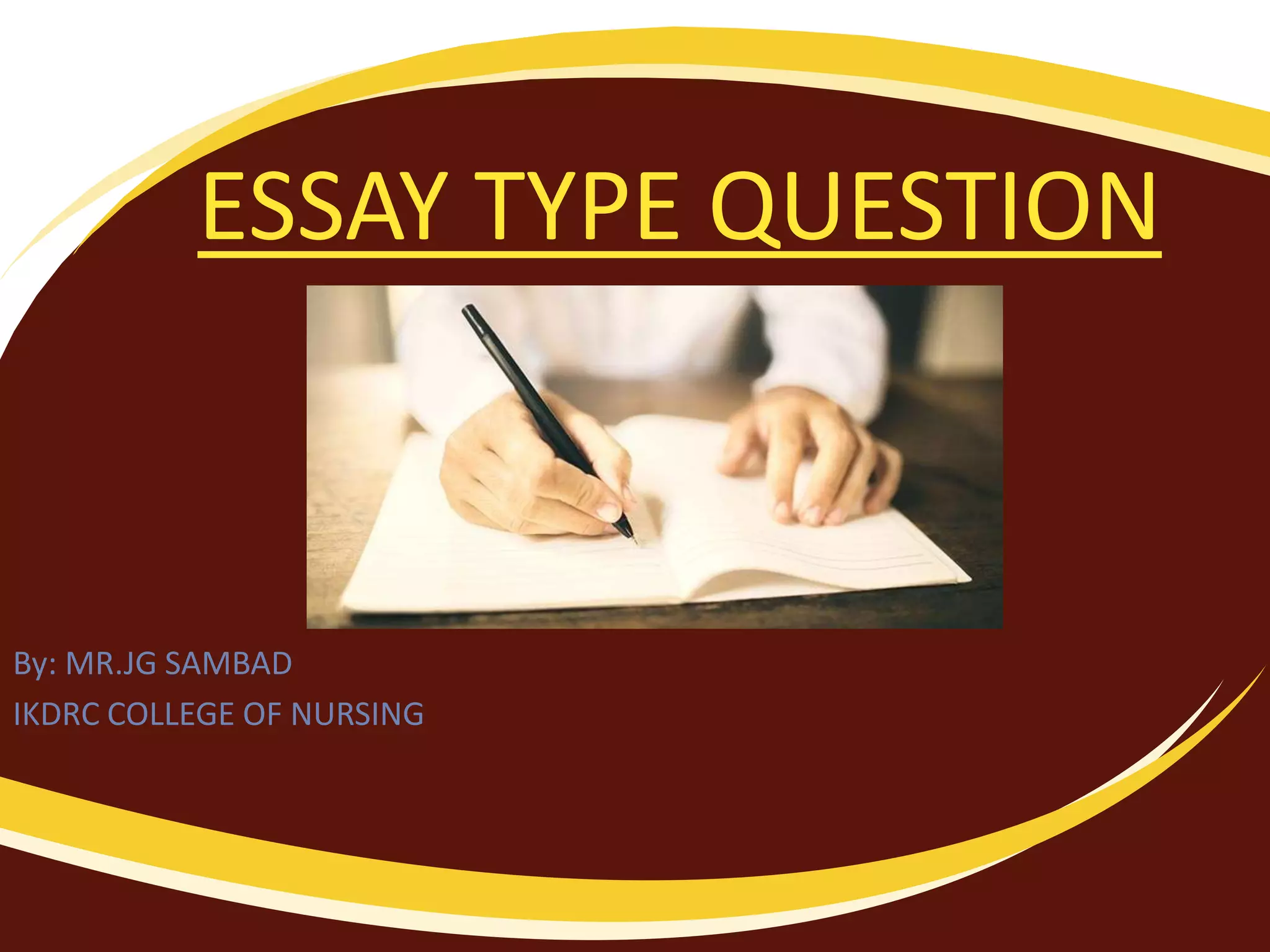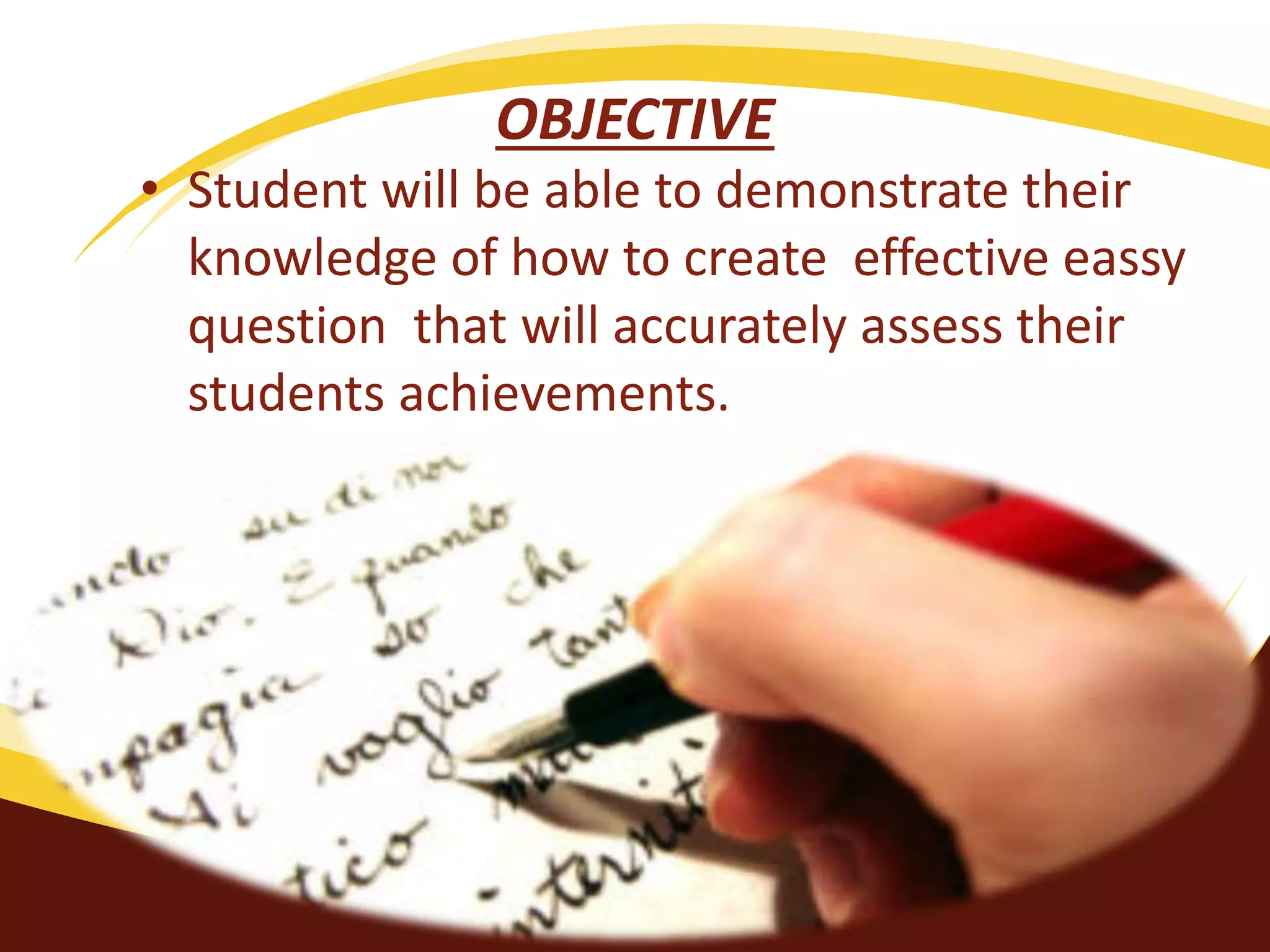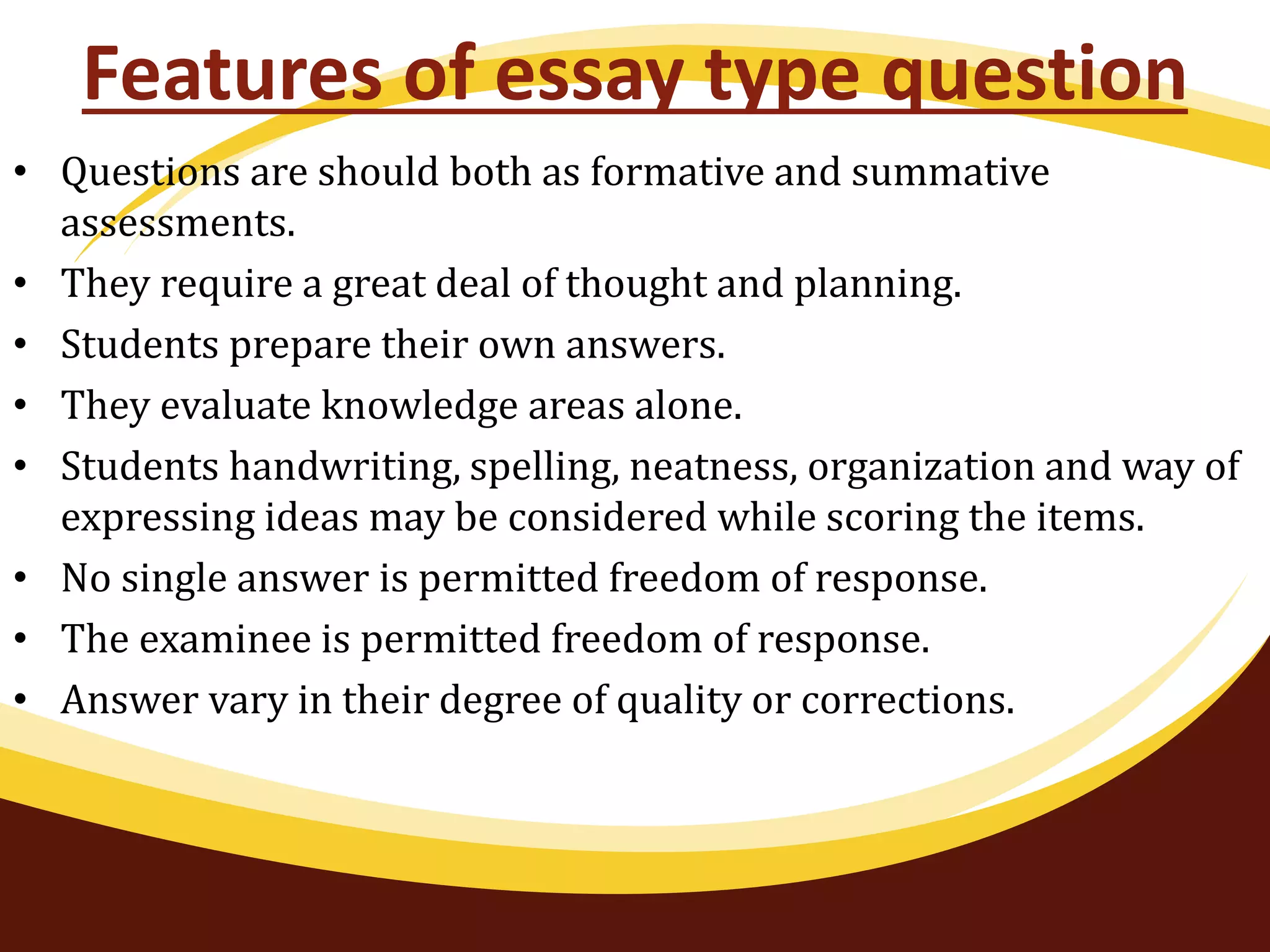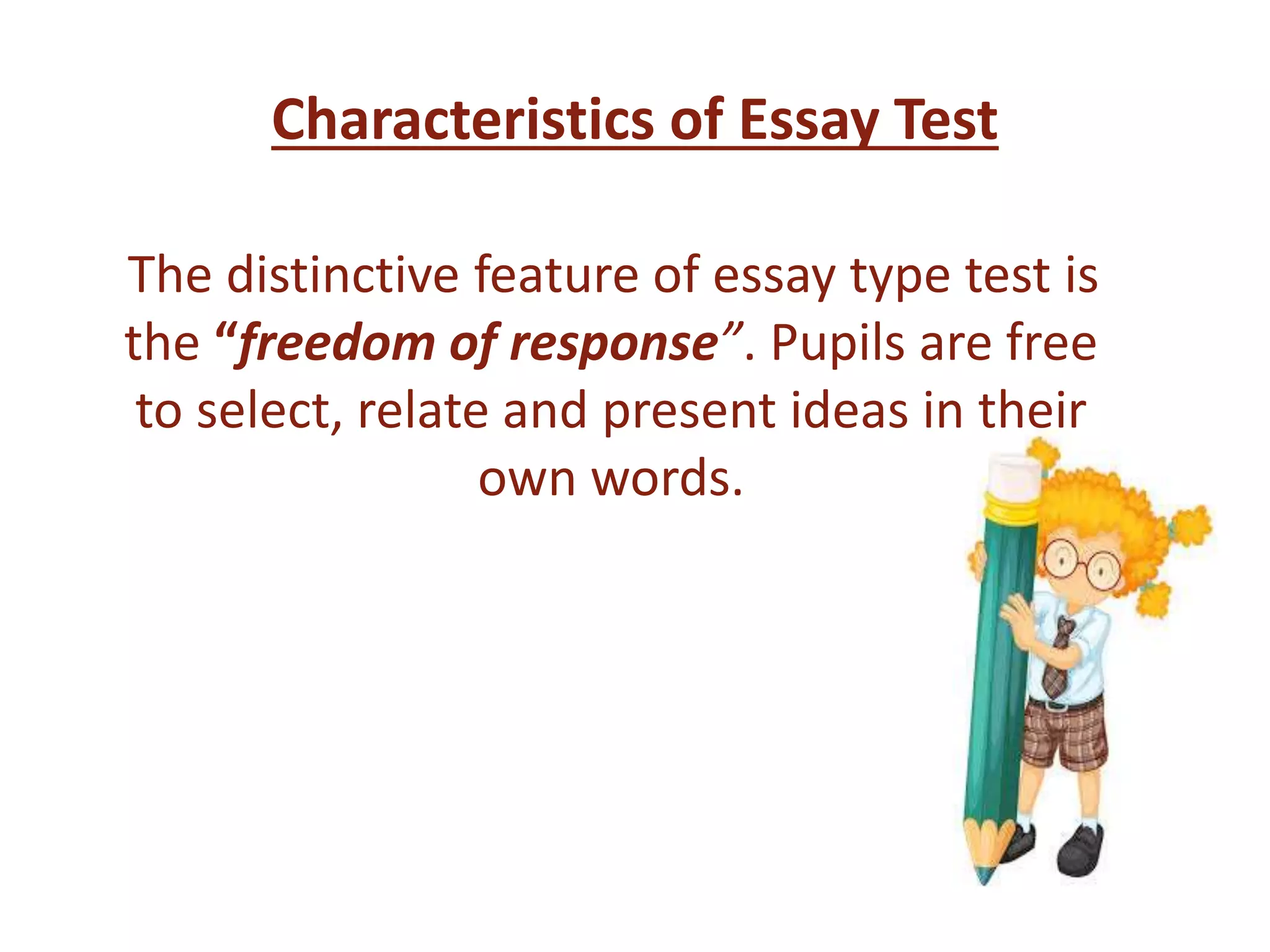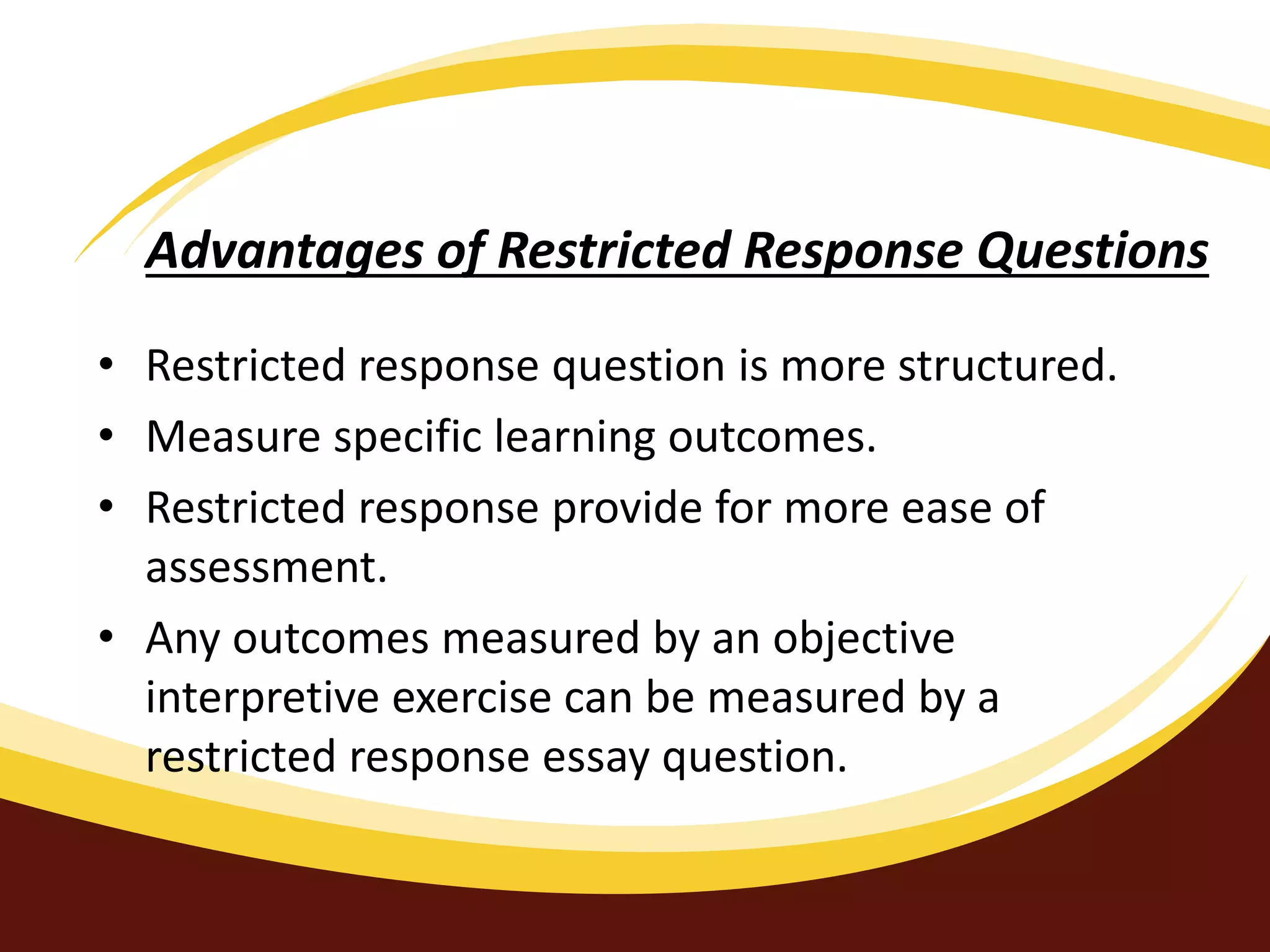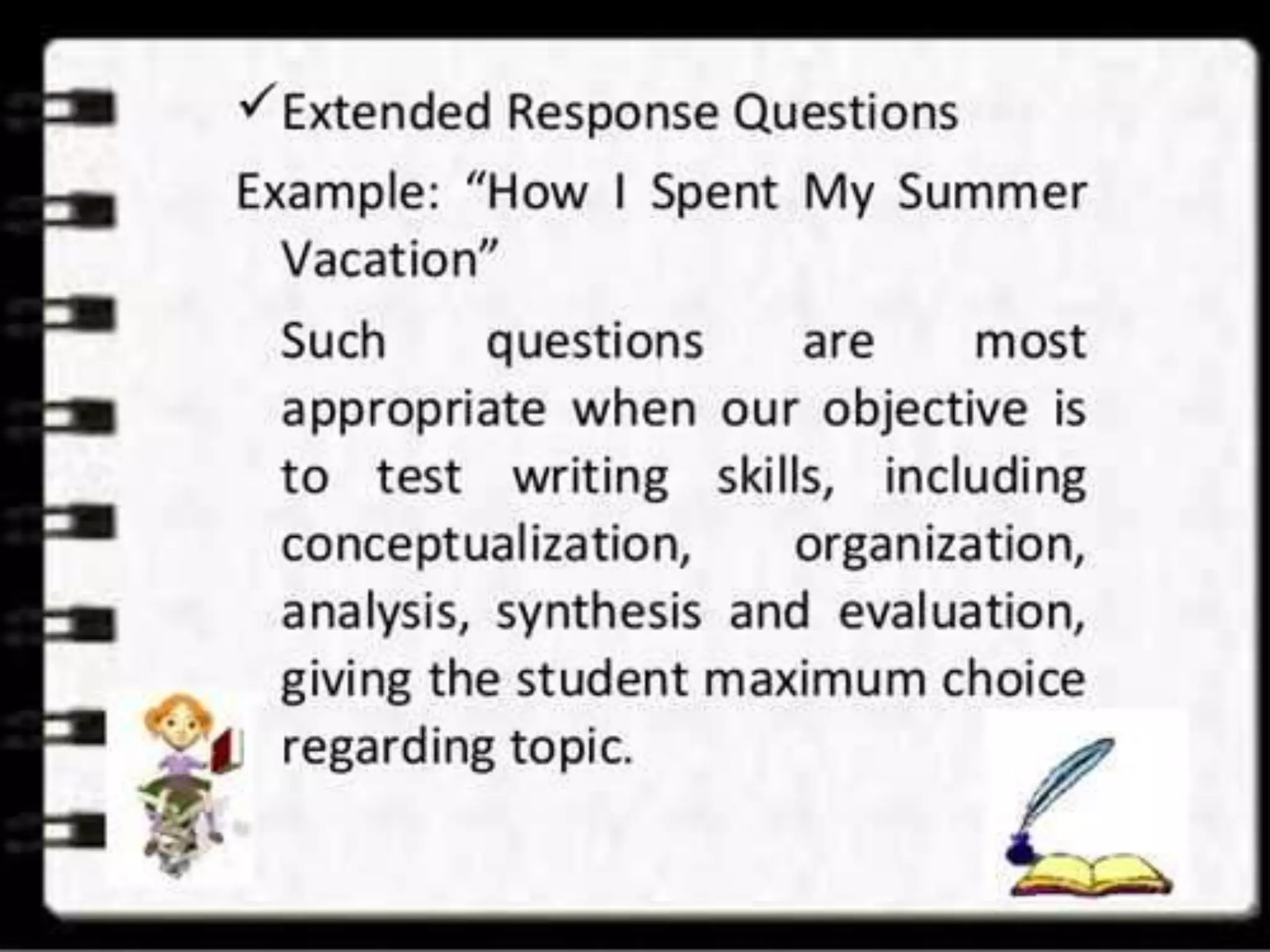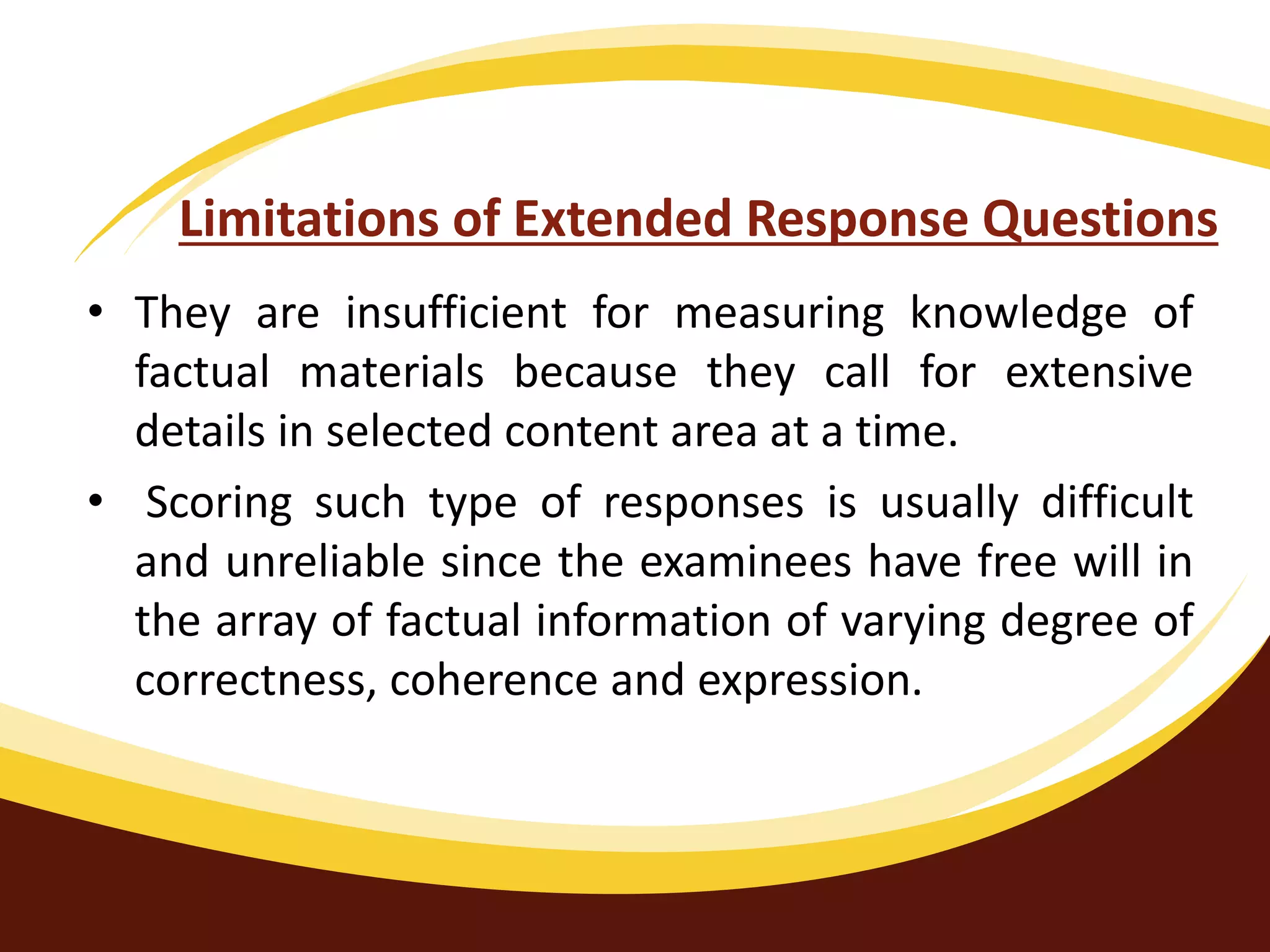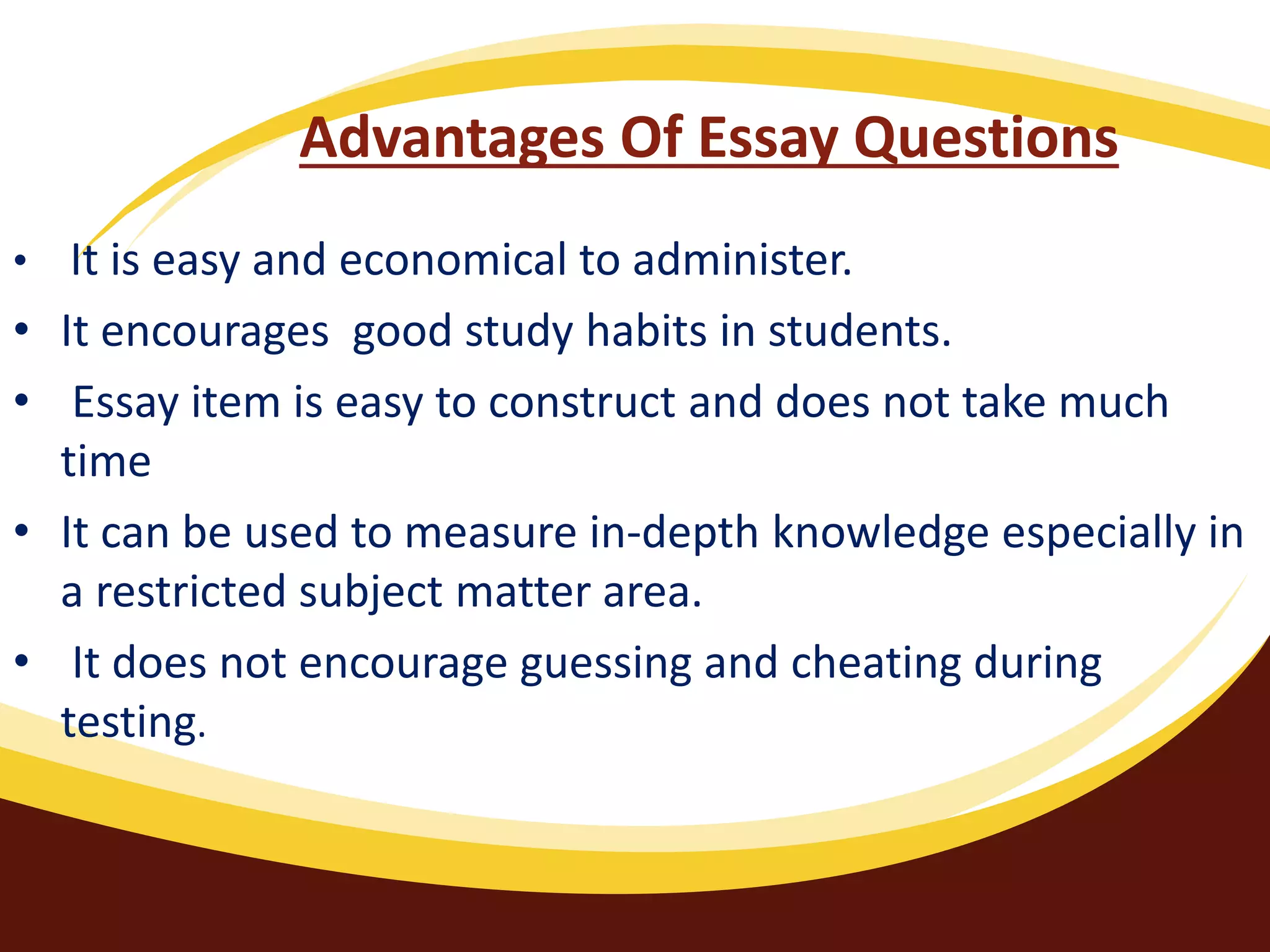1. The document discusses essay type questions, their advantages and disadvantages as an assessment tool.
2. Essay questions allow for freedom of response but are time-consuming to score and more subjective than other assessments.
3. The document provides tips for constructing and scoring essay questions effectively to accurately evaluate students' knowledge and skills.
